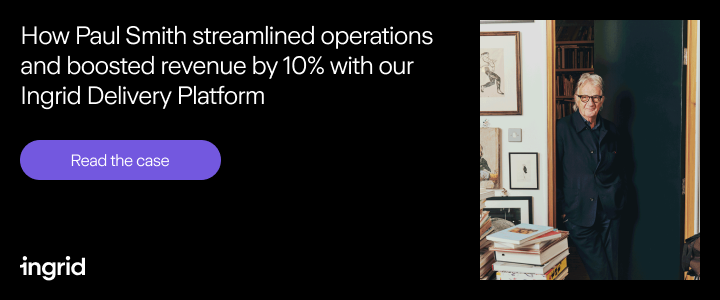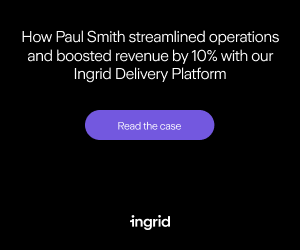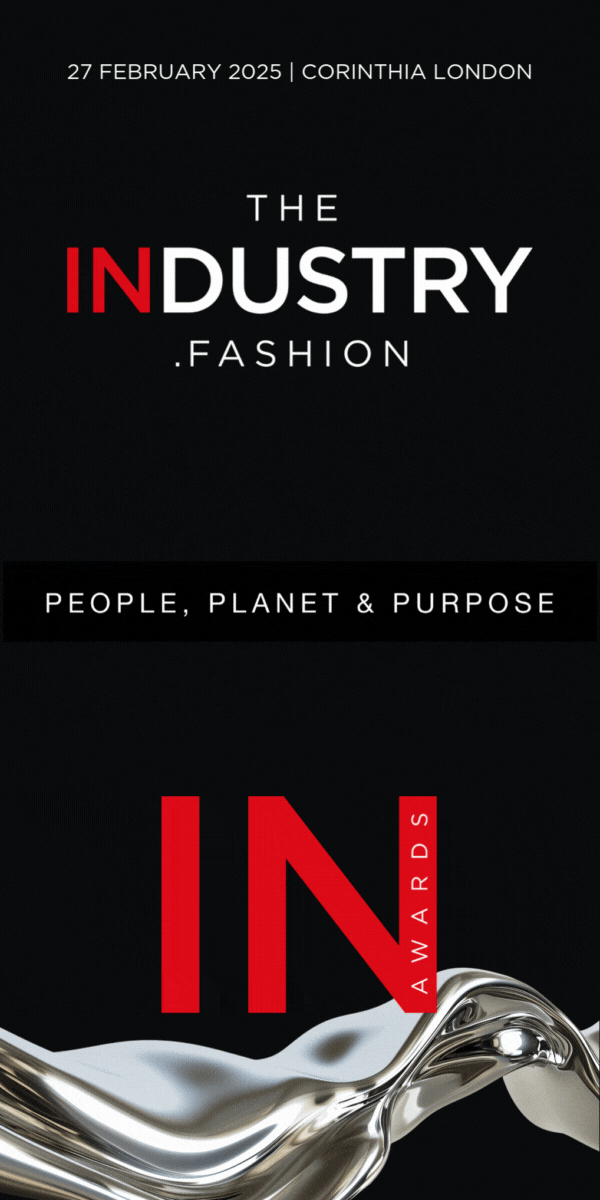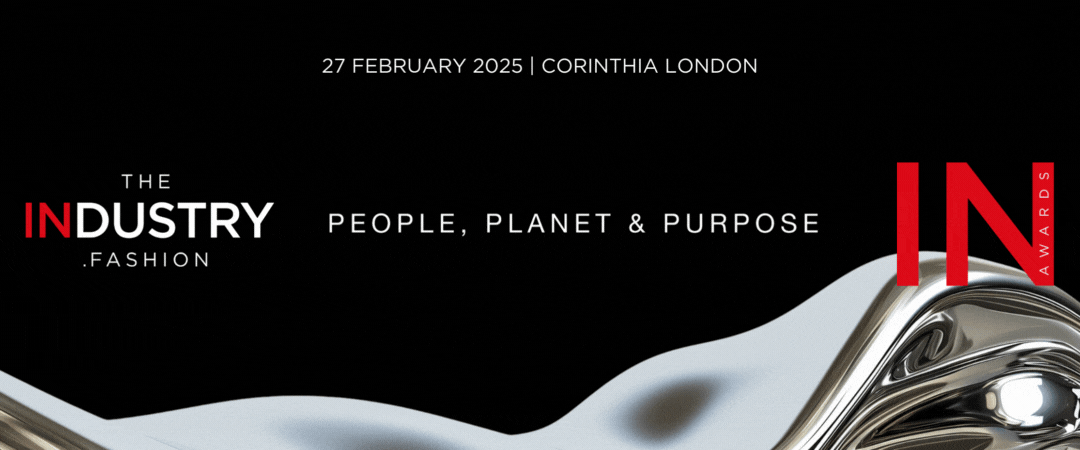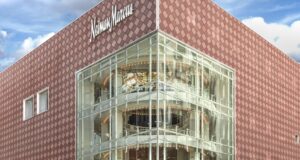Steps away from TheIndustry.fashion’s office lies Oxford Street, where there are multi-brand shoe retailers galore – from Schuh and Office to Selfridges and JD Sports. However, there are few accessible single-brand retailers left on the British high street. In the now niche category, Dune is one of few.
The British footwear brand was founded by Daniel Rueben, who has now reached legendary retail status, in 1992. Following in his grandfather’s footsteps, who migrated to the UK from Lithuania in 1895 and shortly after became a shoe manufacturer, Rueben set out to create footwear that not only prioritised style and comfort but also accessibility. Throughout the past three decades, Dune has stood on the ever-changing British high street. A haven for shoe-crazed men and women who value both comfort and style.
In this interview, hosted at Dune’s London head office, Rueben delved into the fascinating history of his family footwear empire and discussed the ever-changing landscape of British retail and sadly, how it’s shrinking. He also touches upon Dune’s highs and lows as well as its plans to rise from the rubble of Covid-19 and head overseas with its latest maroon and leopard-print-infused collection.
Let’s start at the beginning, your grandfather worked as a shoemaker at the turn of the 19th century. Is this what inspired you to get involved in the shoe-making business?
The story began in Russia. Jews were badly persecuted there at the time, so my grandfather decided to leave because it was intolerable there. He arrived in London penniless but managed to find a job at a shoe workshop.
In 1925, he opened a manufacturing factory in Bethnal Green. The industry in London then was massive. We didn’t import anything; everything was made in the East End. Around the 1950s in London, there were around 50 factories, all owned by immigrants, all making shoes. London had a reputation for making very elegant shoes.
My dad later went into the family business but he warned me, “Daniel, whatever you do, don’t become a shoe manufacturer. It’s tough. Become a chartered accountant like Uncle Harvey – he’s successful”. So that’s what I did. I went to university and I became a chartered accountant.
When my father passed away, I didn’t fancy being in business with his partner, who had a drinking problem, so we sold our share and I joined another manufacturing business that was owned by my uncle. It was 1976 and all of a sudden I was a shoe manufacturer, despite what my father said. For 10 years, I was making shoes, and it was getting more and more difficult as more and more imports started to come in.
In 1985 I went to the Far East for three months. Back then, Japan was making all the sports shoes and Taiwan was making fashion shoes. When I went to Taiwan, I saw them making shoes and it was easy – beautiful product and half the price.
I knew there was no future in making shoes in the UK, so I sold my shares in the manufacturing business, and in 1986, I started importing shoes, which was quite successful. We were importing 10 million pairs of shoes a year, turning over 60 million pounds. and selling to a lot of shoe specialists as well as retailers such as Marks & Spencer and NEXT.
You then moved on to wholesaling and later set up Dune in 1992. Why did you decide to create Dune?
I was doing all this work, but I had nothing to show for it – no name to a brand. So in 1992, I started Dune. We had a little concession of dressy shoes in Debenhams.
I then saw an advert for a nice guy, Norman Freed, who owned Jane Norman. Freed wanted to put some shoe concessions in his West End Stores and I persuaded him to let me be the one to do it.
Where did the name ‘Dune’ come from?
It’s a metaphor for a sand dune. A sand dune is always changing its shape as the wind blows, the same way fashion is always changing and moving.
After building a successful concession business, when did Dune step out on its own?
We opened our first store in 1993 at 37A King’s Road. It was very little; we didn’t want to spend much money on it. I had this concept I’d seen in Paris of putting the shoes on the boxes. This meant we could serve the customer quickly, but it also saved us a lot of space as we didn’t need a stock room. To be honest, it wasn’t my best, most creative moment, but it did the trick.
At what point in your career did you sit back and say, ‘yep, we’ve made it’? Can you recall that pivotal time?
I don’t think I’ve ever felt that. Things don’t go in a straight line. Retail is very up and down, and all sorts of factors affect it – from the weather to government legislation. So I’ve never really felt ‘we’ve made it’.
For example, when we began building the Dune business, department stores were the perfect segway into the market. At the time, they were fantastic because we didn’t have the cost of rent. It was low risk. But with the decline of Debenhams, we could see there were problems on the horizon.
Then the pandemic happened. It was tough because we had closed up our stores, which meant we lost a lot of money. Funnily enough, on the other hand, we managed to get out of Debenhams without losing a lot of money.
We released all that stock that was tied up in these small concessions around the country. At the end of the pandemic, we ended with a smaller but stronger business, much more reliant on our distribution, our shops, and our websites. It was sort of a cleansing process.
In 2022, Dune returned to profit. Can you tell us about how you’re carrying forward this momentum?
We, unfortunately, had to go through a CVA after spending a lot of 2020 trying to persuade landlords to be more helpful. We were paying rent that was much, much too high, and they wouldn’t listen. On the third lockdown, we had no choice, but that allowed us to get our rents at a reasonable level.
So now the focus was very clear. We had our select group of stores.
We’ve just opened a new concept store in Lakeside. The new design has seen a 20% uplift in sales. We’re focused on fewer, better stores in key locations that are going to be a showcase for the brand.
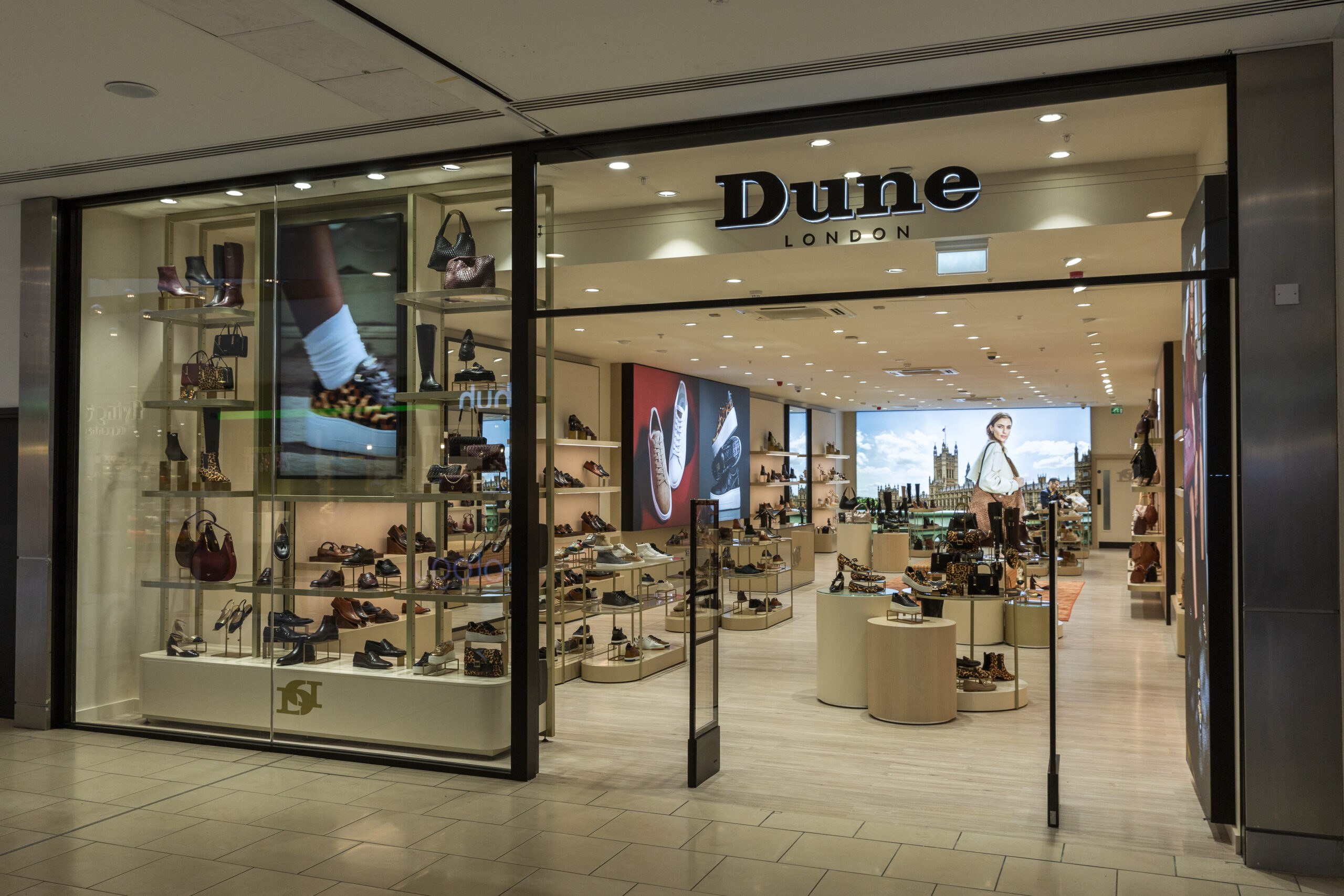
Dune, Lakeside
Is opening key stores in key areas the only focus?
We’ve also got very profitable outlet centres. Being an omnichannel retailer is super important and there’s a lot more we can do with our website. We’re looking into AI to better personalise the experience.
Can you tell us about Dune’s new AW24 collection and how you’re refocusing the brand?
I think that one of the biggest changes within our new collection is the emphasis on fit and comfort. I mean, one of the things I’m most proud of is the amount of effort we put in to ensure our shoes are comfortable and flexible.
Over time, the industry has become very fragmented and a lot of specialists have left the industry because it’s smaller. I think we’re missing some of that expertise in shoes.
Some are making comfort-first shoes, but there are 24 billion pairs of shoes produced a year. That’s a lot of shoes, and a lot of those are cheap. Sometimes they look great, but there’s a limit if you want to get down to a price to how you can improve that shoe.
Of those 24 billion pairs of shoes produced a year, 22 billion go into landfill. It is a major challenge for the industry.
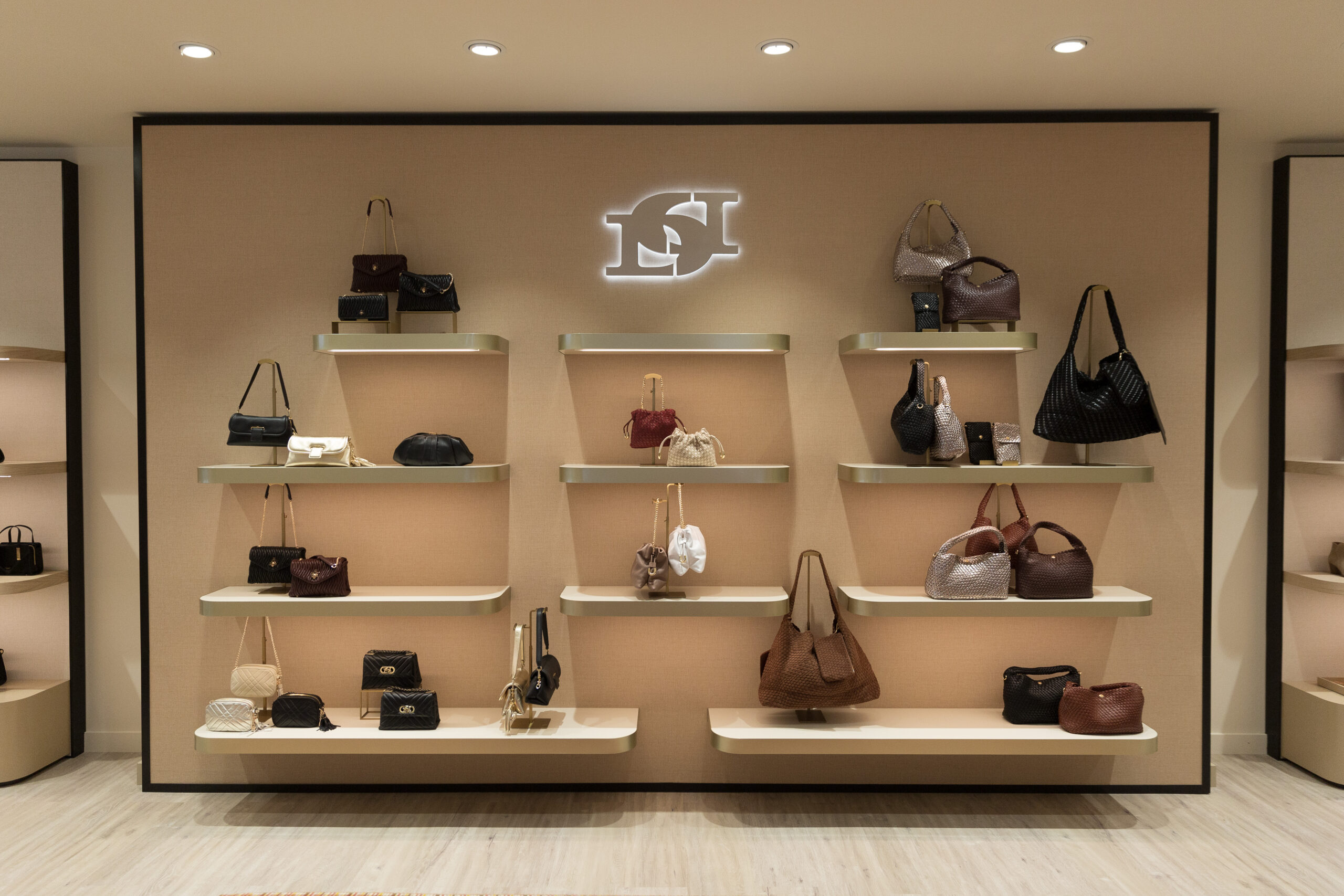
Dune Lakeside Store Opening
Handbags are a growing sector of your business. Is Dune shifting more focus on this category?
We have always been successful with bags, but they’ve mainly historically been synthetic bags. Now, we’re moving quite quickly to upgrade our bags and make them out of leather or special materials.
We’re putting greater emphasis on them by making more space in store bags, rather than bags just being our byproduct of shoes from Dune. We want people to come in and say, ‘I want to bag from Dune’. That has been the main driver for our move towards increasing our bag percentage. Plus, they take up much less space in the stock room!
Nigel Darwin was hired as CEO at the start of last year, how has this impacted the business?
I was CEO during a really difficult period between 2020 and 2022, but I was never going to be CEO in the long term. I didn’t want to be involved with the day-to-day management. Nigel’s very analytical and he has got a lot of experience. He’s great at managing, organising, and motivating the team.
Tell us about your plans for Dune going forward. Are you looking to expand the business, if so how?
Our big focus is international expansion. The UK is only a certain size – the US is 10 times as big. We’re already in Dillards in the US and now we’re starting to get into more Nordstrom stores after being online. The US is a major, major target.
In terms of the UK, we want to grow our third-party partners. We do tremendously well with NEXT and we’re doing well with John Lewis, so we’re going to increase this network to include Marks & Spencer.
It’s all about sales and it’s all about the product. Then it’s about selling it as wide as you can to the right people and building the brand while being precious about where it’s distributed. Once you’ve got that right, which I believe we have, it’s about selling.



